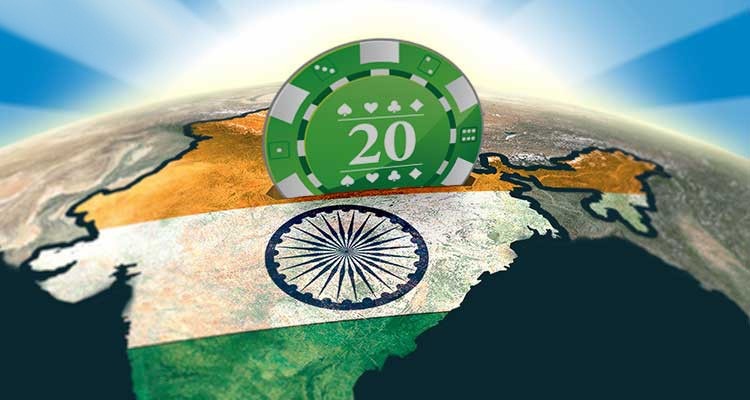With a 1.366 billion population, India is one of the most coveted markets for many industries. Social and economic changes that transformed the country in the past few decades have made it as coveted among investors as many Western countries. And the one industry that seems to dominate the free time of many Indians is gambling.
According to the “The era of consumer A.R.T. – Acquisition Retention and Transaction” report by EY FICCI, online gaming is the fastest-growing segment of entertainment among Indians of all generations. In fact, this popular pastime has noted a 31% growth in the number of gamers.
It is estimated the number of gamers has reached 365 million in 2020. After the COVID-19 pandemic waves that keep the people locked inside their homes, that number can only be higher. The numbers are definitely encouraging, but is this scenario all rainbows and unicorns? The reality is far more complex.
The increasing popularity of gambling in India
India’s gaming industry is no.1 in the world, worth $930 million. It is estimated the number will reach $3.8 billion by 2024. Nonetheless, this information should be taken with a grain of salt. It is important to mention that there is no scientific research on the status of the gambling industry in India, and the word “gaming” often includes another popular industry – esports.
Clearly, gambling still contributes to this massive number, especially if we know that many Indians decide to play on the black market due to the lack of regulated online brands. George Lewis, a casino specialist at CasinoHEX.in, has dedicated his career to the online casino industry and has a detailed insight into who visits the CasinoHEX website and why.
“When thinking of India, many people don’t understand how the internet really changed the face of the country. India is the second-largest internet consumer in the world, with 560 million users. 50% of all Indians are under the age of 25, and 85% of gamers have their daily dose of adrenaline by playing on mobile phones”, he explains, adding that the ever-growing middle class and accessibility of mobile phones makes gaming of all sorts accessible 24/7.
But what do those numbers precisely mean? The more and more powerful middle class is known to have more free time. Professionals of all sorts tend to develop their lifestyles around postmodernist values. Sociology of postmodernity suggests a positive outlook on scientific, political, and technological development.
Mass media, melting pots of nations, and mobility of people (not only in terms of space but also in terms of social classes) result in a more relaxed approach to life, as the everyday struggle of obtaining means of survival is reduced to a minimum.
Modern Indians spend their time in what is known as leisure activities, and gambling is only one of them. Needless to say, it is also one of the cheapest hobbies of this kind, as most online casino brands focus on creating budget-friendly deposit limits.
Gambling regulation in India
It is obvious that the gambling industry finds India interesting, but does affection go the other way around, as well? India is, in many ways, still struggling to create an effective regulatory framework that would have positive effects on the industry, customers, and state treasury.
Most states rely on the ancient Public Gambling Act of 1867. As you can presume from the date, this law doesn’t recognize the existence of online gambling. But things get even more complicated. While some states implement only the Act of 1967, others voted their own laws, some of them banning gambling completely and others making it legal.
“The fact that Indian authorities ignore the benefits of the casino industry speaks for itself. It is as if they believe that a ban will prevent people from gaming. In my experience, quite the opposite will happen. Nothing is sweeter than forbidden fruit, and players will always find their way to access games. Don’t think that it is possible? Remember that during most festivities, authorities turn a blind eye to gambling on the streets,” reminds Lewis.
A complicated regulatory framework prevents progress
India is not only big in population, but also size. Expanding across 3 287 263 km2 and divided into 28 administrative territories, it is a true legal challenge. Despite the socio-economic progress, the Wall Street Journal reports how India was and remains a “bureaucratic nightmare”.
A study by Political & Economic Risk Consultancy Ltd. showed how lacking infrastructure, corruption, and regulations that leave a lot of room for different interpretations can be quite discouraging for investors. According to Lewis, India has to opt for a more unified approach and treat the country as one market, while implementing western business standards.
“Indian lawmakers must know that the licensing process in most EU countries doesn’t take longer than a month to complete. You are either qualified or not to provide gaming services. It is that simple. The effectiveness is present not only in collecting taxes and keeping a close eye on business practices but also in encouraging casinos to join the public discussion and share their concerns,” he explains.
Lewis also acknowledges the fact that India is several times bigger than all EU states combined, but doesn’t see it as a relevant issue:
“It is easy to find reasons why something shouldn’t be done. However, digitalization makes things happen at the speed of light. If India wants to benefit from this industry, it must adapt to modern business standards.”
Sunil Krishnamurthy, general secretary of the All India Gaming Federation Advisory Board, mentions the confusion created by games of skill and games of chance. Apparently, the fact that every state has the right to decide whether a certain activity is based on skill or chance is puzzling gaming companies.
“We, as the AIGF, have always been trying to create this clear ambiguity among government officials so that they clearly see what are the games of chance and what are the games of skill,” he says.
Still, the fact that something as simple as the gaming genre can be open to so many legal interpretations is no consolation for companies willing to operate in India.
Legal gambling brings money
In 2021, it is more than obvious that Indian authorities are not very keen on making gambling legal. Actually, it seems as if they are eager to make things as complicated as possible. For instance, in 2020, the Supreme Court of India approved the application of Goods and Services Taxes on the lottery. The rates are insanely high, even for Indian standards: 12% on lotteries based in the same state and 28% on all lotteries outside state borders. The same year, Andhra Pradesh banned online gambling completely, and several other states focused on prohibiting only certain types of games or apps.
Lewis believes the government is missing an opportunity to generate a steady income for states’ budgets. He has mentioned Malta and Curacao as prime examples of how the gaming industry can transform the economy with little to no investments on the government’s behalf. Just recently, Malta Gaming Authority published an annual report stating that the total revenue from gambling was in 2020 was €77.3 million.
“Many like to say that tax money collected by companies is maybe not worth it,” he says, “And even though I don’t necessarily agree with that, I understand the concern how legalization would just increase the bureaucratic apparatus. Even so, let’s not forget that the legal gambling industry can bring benefits for all Indians. Gambling industry can be regulated in a way that brings workplaces, and not just that, but also makes the country even more popular for digital nomads from all over the world, increases self-employment rates, etc.”
It seems that Mr. Lewis is on a good track here. India has the world’s largest base of software developers, and by 2023, it is presumed, the number will reach a sky-high 5.2 million. In the global casino market, IT experts not only put on new websites, but also develop apps, games, safety systems, and payment platforms.
However, software engineering is not the only sector that can benefit from the online gambling industry. There is also marketing, customer support, legal representation, construction, facility management – essentially, all social classes can find jobs in the gambling industry, that is, if lawmakers decide to implement obligatory employment rates for locals. Some regulators, for instance, require every company in their jurisdiction to have offices and a legal representative.
Problem gambling is not recognized in India
Gambling has been an essential part of Indian culture for centuries. It is even mentioned in Vedic scriptures. But, riding the wave of neo-puritanism, it is often perceived as an activity that can lead you to financial troubles, alienation from friends and family, and physical and psychological demise. What is even more concerning is that India doesn’t recognize problem gambling and gambling addiction as serious mental health issues.
According to a paper published by Sanju George, Roy Abraham Kallivayalil, and T. S. Jaisoorya, in the Indian Journal of Psychiatry, this type of mental health problem doesn’t “occupy a place within mainstream Indian psychiatry”.
Authors note how there has been no systematic research on gambling addiction, despite the rising number of gamblers. In their opinion, India should follow the footsteps of Western societies that not only recognize the issue but also make it a crucial element in establishing safe and regulated gambling practices. Lewis from CasinoHEX.in agrees with them:
“Regulating the market means not only operators have to display warnings on gambling risks, but also ditch misleading and unethical business practices. Furthermore, they can be obliged to contribute to different causes such as helping gambling addicts by financing specialized organizations or donating to fight underaged gaming. India has a young population, who has access to all sorts of content, including gambling. We can all agree that youth have nothing to do gambling online.”
Will India change its ways?
With all this in mind, it would be completely reasonable to conclude India should take advantage of the current situation to keep the current economic growth rate. Still, the current situation is not very bright. Lawmakers focus on discouraging policies rather than those that can bring something to the budget, cause further development, and increase the protection of players.
Some states understand the importance and attractiveness of gambling. Also, they see financial gain, one that shouldn’t be disregarded easily. Players can only hope they will soon be able to play with locally licensed companies that bring them a higher level of protection as well as encourage responsible gaming.
Gamblers will gamble, and prohibition of this activity won’t prevent people from enjoying their games. For this reason, we believe once the states with a more proactive approach start to reap the benefits of their efforts, others will follow.
Read more: Top Gambling Affiliate Programs














